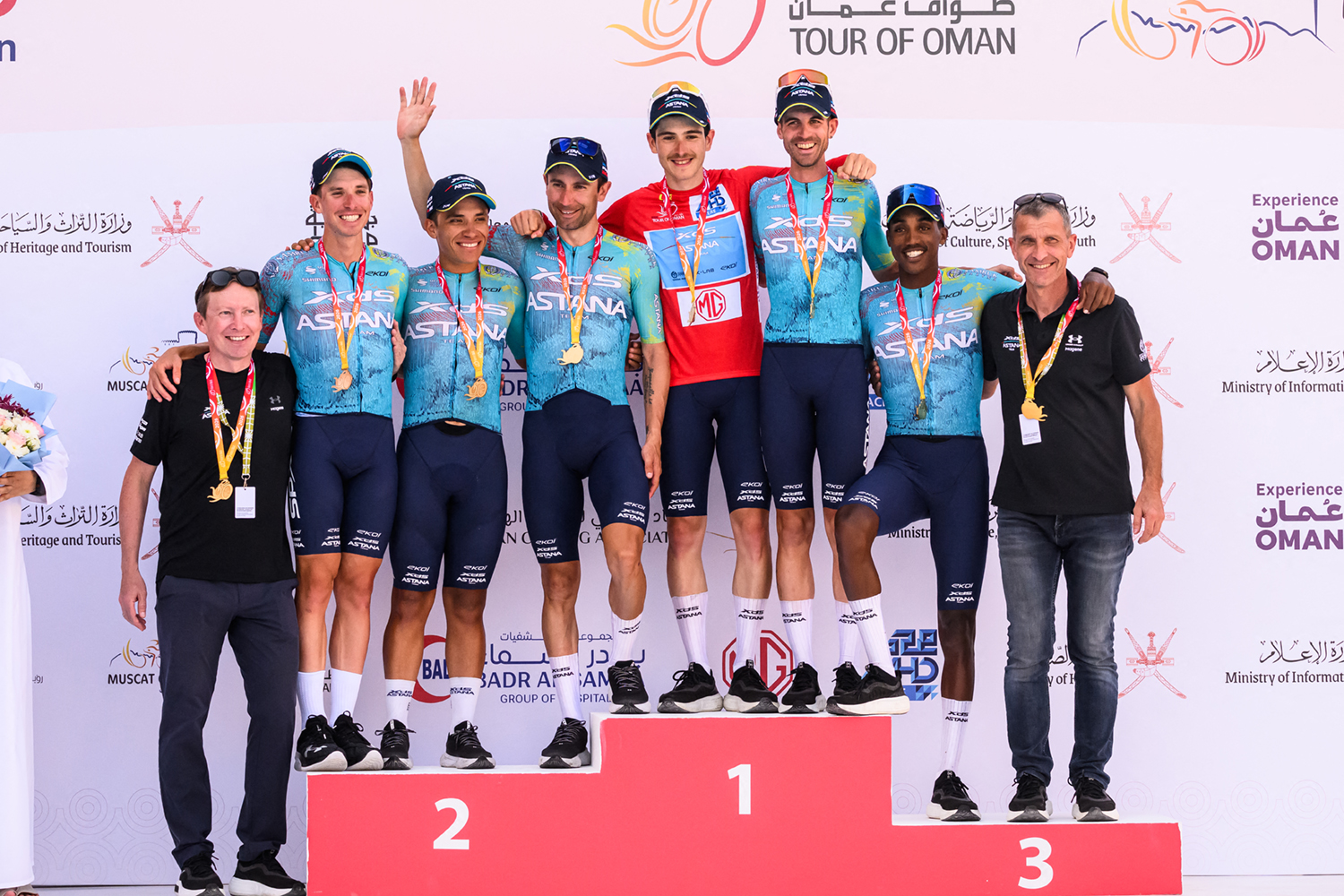Shane Perkins: When winning is about more than a result
Keirin World Champion heads toward Olympic debut
The latest race content, interviews, features, reviews and expert buying guides, direct to your inbox!
You are now subscribed
Your newsletter sign-up was successful
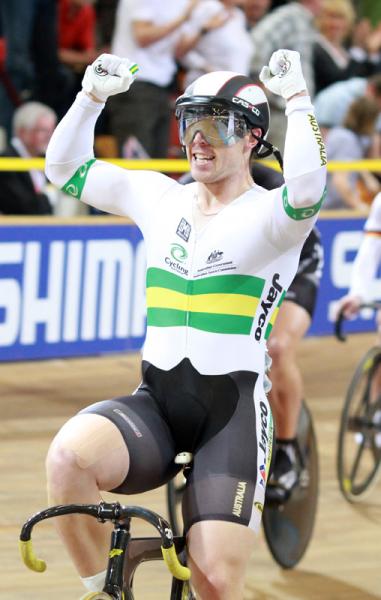
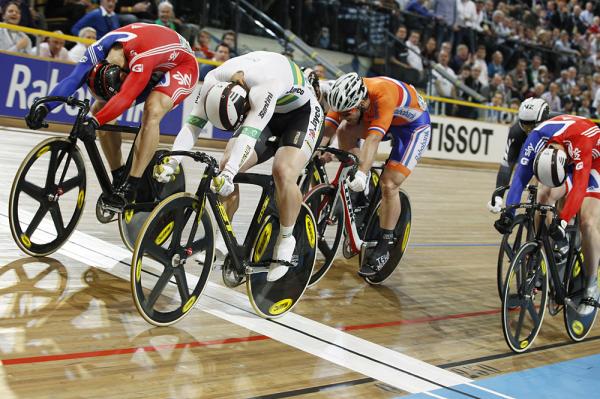
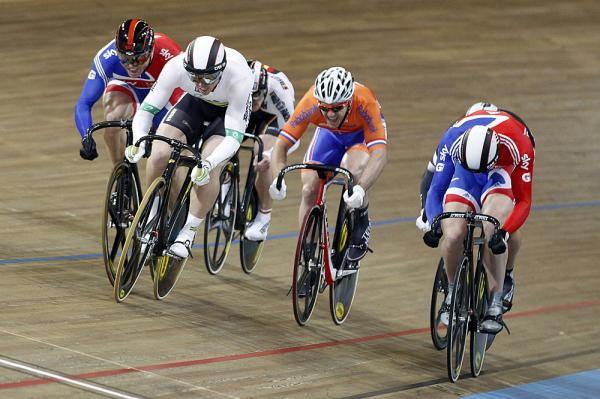
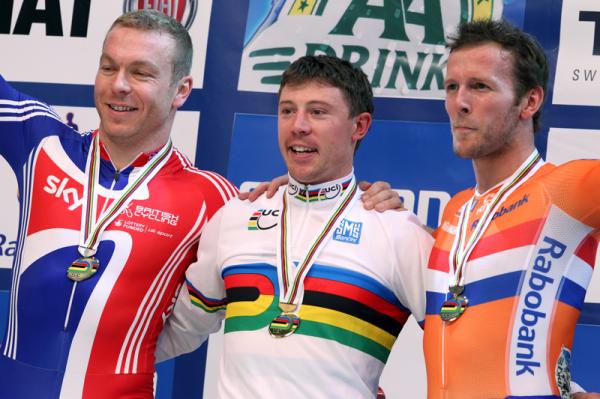
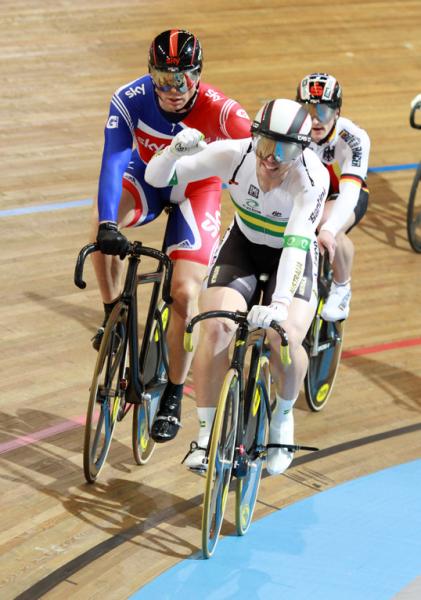
Results in the keirin are measured in one hundredths of a second. When Shane Perkins defeated Sir Chris Hoy for his maiden senior world title in Apeldoorn earlier this year, it was a result that felt like it had been a long time in the making. Seven years after his victory in the event at junior world's, enough water under the bridge that you could probably fill Sydney Harbour a couple of times over, unabashed joy and irreverence in between. Perhaps his was a victory that should have been measured by the man.
Anyone that's faced Hoy on the track over the past decade or so would know that it's an almost overwhelming task mentally, let alone physically, to try and overcome a man with that sort of track record. Perkins was speaking at a function recently with his assistant coach, Scott McGrory, when his victory was replayed. Reality is starting to sink in.
"The biggest thing is, and it's not that I had doubt or I didn't have the confidence, but now I know I can do it," Perkins told Cyclingnews while on a break from training at his base, the Victorian Institute of Sport.
The plan for Perkins in Apeldoorn had initially been the sprint, purely because it was his first event of the competition. He pushed Frenchman Kévin Sireau into his first repechage round of the year before just missing out on the semi finals following a three-race arm wrestle with eventual silver medallist Jason Kenny.
It's only now that Perkins reveals that he was being hampered by some tears in his vastus medialis, one of the four muscles of the quadriceps.
"I realised that I was at a world titles and I wasn't just going to sit up and go, ‘I'm not 100 per cent physically so I've got no chance,'" he explained. "I decided I was going to leave whatever I had out there and hope that that's enough, and surely enough it was."
In the keirin final, Perkins was aggressive from the outset and took the first position behind the derny but once it left the track, the Australian came under attack from Hoy and compatriot Matthew Crampton with the latter taking the lead. With the bell lap sounding, Perkins was boxed in by the pair from Great Britain. On the back straight, Perkins kicked his intensity up a level, flying past Crampton and pushing Hoy higher up the track. The tactic proved too much for Hoy and Perkins was the victor.
The latest race content, interviews, features, reviews and expert buying guides, direct to your inbox!
Far from offering excuses, Hoy said that fighting back after nearly being eliminated in the second round of the event had left him mentally drained, rather than the physical effort. It was a sentiment Perkins understood perfectly.
"You don't have to always be on fire physically to win races," he said. Apart from his knee playing up, Perkins had been seriously busy in the lead up to the world's with his wife Kristine giving birth to the couple's second child, Mischa who joins two-year-old Aidan, and had "missed a bit of training."
"I wouldn't change it – it's another great experience in my life having our second child and I'll never forget that – having Mischa and winning a world title in the same year, obviously things didn't go that bad, but we learnt a lot through our preparation with a few little niggles that I had," he offers laughing. "It's all for the better now leading into London next year."
No I in team, but there is one in Perkins...
The greatest gains for the now 24-year-old have come in the last two years but it was when Perkins approached Sean Eadie for coaching midway through 2008 when a career that had appeared to be at times on the skids, mostly due to incidents away from the track, started to turn around for the better.
"We've come a long way together," Perkins said. Eadie, 2002 world sprint champion, coaxed his young charge away from sweating the small stuff. Early on, Perkins had a penchant for trying almost to coach himself, sapping precious energy. Eadie changed all that and the relationship between mentor and athlete is one built on mutual respect.
"We're pretty much in sync on so many things – I'm almost a micro-manager, I'm just there to fine tune," Eadie said, reasoning their success. "My job is to stress, to worry and the planning and Shane's job is to train hard and ride his bike. That's not to say that he doesn't always have questions and he likes to know why things are being done, but he's very good at letting that go."
It was Eadie who held Perkins on the start line in Apeldoorn before the keirin final, brow furrowed, looking more nervous than the rider himself. While Perkins punched the air after his victory, it was Eadie jumping up and down on the side of the track, with tears streaming down his face. One of the toughest men in Australian track cycling history had cracked.
"There would have been people that thought that was never going to be possible," Perkins admitted. "He [Eadie] may have a bit of a rough exterior but really he's a bit of a softie."
According to Eadie, it was a "dusty track" that was to blame before adding seriously, "It's a totally different experience from trying to do it to helping someone else do it."
Perkins may describe his relationship with Eadie as "one in a million" but there's more to ‘Team Perko'. There's also sport science, chiro, physio and massage out of the VIS, along with Perkins' wife. With two kids, time management is an extremely important element to Perkins' success, and he gives Kristine a lot of credit for keeping the home-front running smoothly.
Post world championship meetings determined that changes will be made to "a few little things but not too much," with a home world championships next March before the London Olympic Games. There will be new benchmarks on the track in training and in the gym. Perkins often talks about how he "squats houses," which at the moment is 215 kilograms. He would like to see this increase to around 230 – a little over two-and-a-half-times his own body weight.
For Eadie, his first priority in what will be a busy 2012 will be Perkins' focus. The pressure will be on with the Australian attempting to not only defend his rainbow jersey, but also denying Hoy the perfect swansong.
"I don't think it will be that bad to tell you the truth because he experienced a home Commonwealth Games in 2006 in Melbourne so he's had that experience of an arguably bigger media spotlight at Comm Games than at Worlds," he said. "So he knows how to deal with that and he's done it very well. We're working on some planning stuff to alleviate some of the franticness that comes from a home Worlds and just to let him do his job, which he does very, very well and train hard."
Fire in the belly
There was a time after his successful world junior titles in 2004 when things weren't going so well for Perkins. Immediately after Los Angeles there was the six month ban for the inadvertent use of a stimulant found in a Vicks nasal inhaler purchased in the United States during the titles. The nightclub incident in 2007 that resulted in some time out from the VIS and a monetary fine; the tension between him and then soon-to-be brother-in-law Ryan Bayley that boiled over onto the track. It was a nightmare that snowballed into Perkins missing selection for the Beijing Olympic Games. Frankly, he was doing a wobbly dance on the career tightrope.
"Yes it was tough, but I wouldn't be where I am now if those things didn't happen," he admitted to Cyclingnews.
There was the odd shining light in those troubled times for Perkins, who reveals he's a believer when it comes to things happening for a reason. In 2006 he was part of the team sprint which took the bronze medal at the Melbourne Commonwealth Games and at age 19, became the youngest Australian cyclist to do so. But out of the events of 2008 came the breakthrough.
"That year we also had the birth of our first kid so that kind of made up for it," Perkins said of his non-selection for Beijing, something he says he still doesn't fully understand. "Having Aiden and getting engaged, I wasn't going to let it be a bad year just because I missed an Olympic Games."
Having already gone through so much, it almost comes as a surprise that Perkins is only 24.
"I've had a lot more experiences in my life and learnt more things and digested a lot of things that have gone on, and come out of it all for the better," he said.
Sprinting is an aggressive business. So with the new-and-improved version of Perkins available for all and sundry, it was almost a relief to see that he hadn't lost the fight he had become renowned for when the Delhi Commonwealth Games rolled around last year. He was cited for dangerous riding in the keirin semi finals and then disqualified from the gold medal ride-off where he looked certain to add to his gold medal from the sprint. Problem was, Perkins wasn't informed of the decision until just before the final. He won the 7-12 ride-off and promptly gave a two-fingered salute to officials over their decision.
"My family are very motivating and I love being a good husband and dad and being a good friend to people," he explained. "I'm still Shane Perkins - I'm not anyone different... I've always stood up for what I believed in. You've got to stand up for yourself."
It all adds up to an individual who will be supremely focussed when it comes to the challenges ahead in 2012. Sure, Perkins will be defending world champion but there pressure won't be on him. Instead, the Australian believes it rests strictly on the shoulders of Hoy and the rest of the Great Britain team, aiming to maintain the lofty heights of their recent domination and send their best out in winning fashion.
Going to London and being competitive next year is a right Perkins feels he's earned. Growing up, he watched Shane Kelly and hoped that he too, one day, would feel the confidence that comes with wearing the rainbow bands. In a discipline that's measured in hundredths of a second and where mistakes are punished severely, he knows the feeling, and he bettered the best in the world on the way there. It's a feeling that Perkins will continue to chase and pity anyone in his way.
As a sports journalist and producer since 1997, Jane has covered Olympic and Commonwealth Games, rugby league, motorsport, cricket, surfing, triathlon, rugby union, and golf for print, radio, television and online. However her enduring passion has been cycling.
Jane is a former Australian Editor of Cyclingnews from 2011 to 2013 and continues to freelance within the cycling industry.
